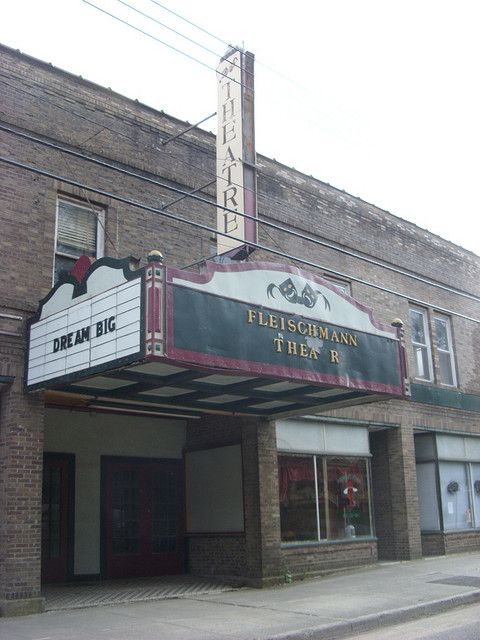
The village of Fleischmanns has won a legal battle over its right to foreclose on a long-shuttered movie theater in the center of town.
On October 21, a five-judge panel of the Third Department of the Appellate Division of the Supreme Court of New York overruled a Delaware County Court decision blocking the foreclosure, ending a years-long legal battle between the village, the Delaware National Bank of Delhi -- which holds a mortgage on the theater -- and the theater's owners, Brian Dowd and Richard Dowd.
This decision means that the village of Fleischmanns may soon own the theater outright, according to Albany lawyer Robert H. Feller, who represented the village of Fleischmanns in the case. But the fate of the theater is bound up in another ongoing court proceeding, he said: the bankruptcy of the holding company that the Dowds established to run the theater.
The theater's tax troubles with the village began in 2007, when the village attempted to collect about $20,000 in unpaid property taxes on the building. In 2008, with the taxes still unpaid, the village filed for foreclosure.
Delaware National Bank of Delhi, which stands to lose some money if the foreclosure takes place, fought the filing in Delaware County Court. The bank's lawyers argued that the bank had not paid the property taxes because when a bank representative called the Fleischmanns village clerk to ask about payment, the clerk said that the taxes had been paid.
In a December 2009 decision, County Court Judge Carl F. Becker sided with the bank. In his ruling, which you can read in full below, Becker wrote that allowing a foreclosure would be an "undue hardship" for the bank. He ordered the village to accept the late $20,000 tax payment instead of foreclosing on the property.
The village appealed that decision, and now the higher court has reserved it, reasoning that it was the bank's responsibility to determine whether the delinquent taxes had been paid, regardless of what the clerk may have said on the phone.
The bank "could have discovered that the taxes had not been paid by either verifying the status of the tax liens with the Dowds or by requesting a certificate of redemption," Justice Thomas E. Mercure wrote in the decision, which you can read online.
"If the taxes had been paid, there absolutely would be written records of that," said Feller. "It's not reasonable to rely on a completely undocumented telephone call if all you had to do was get the records. Would you want a court to hold a hearing every time someone said, 'You know, I called the town or village or county, and they told me that the taxes had been paid?" The tax enforcement process would grind to a halt. The court is saying, 'Look: Even if the conclusion had been that the village gave you the incorrect information, it's totally unreasonable to rely on that."
The Fleischmanns movie theater has been in limbo for much of the past decades as several sets of owners have attempted, variously, to fix it up or to sell it. On one website, a debate has been raging for years about whether the building is worth its one-time asking price of $450,000. (According to court documents, the bank's mortgage on the property today is only $60,000.)
Dave Morrell, the mayor of Fleischmanns, and Robert H. McKertich, the lawyer who represented the Delaware National Bank of Delhi in the case, did not return calls for comment on this story.
Photo of the Fleischmanns theater in 2009 by Doug Kerr, via Flickr.













